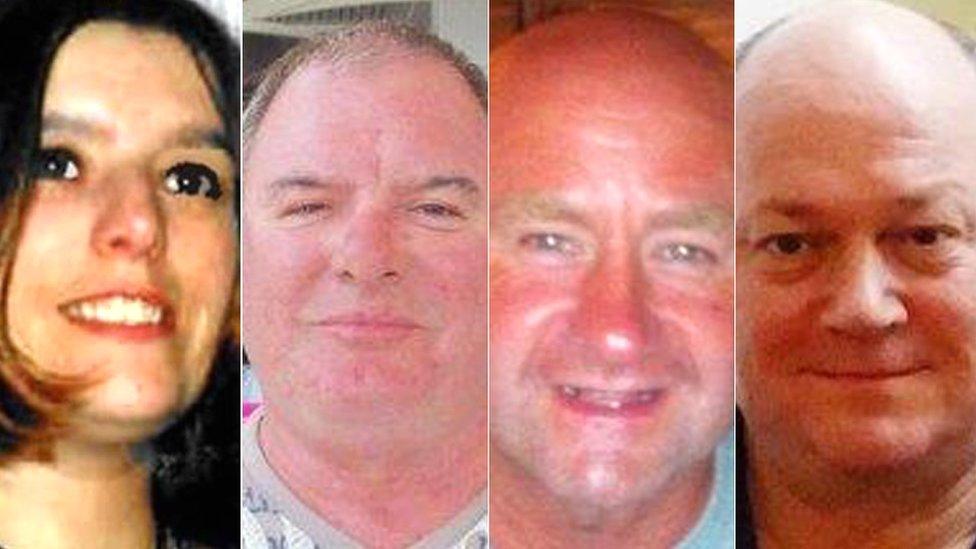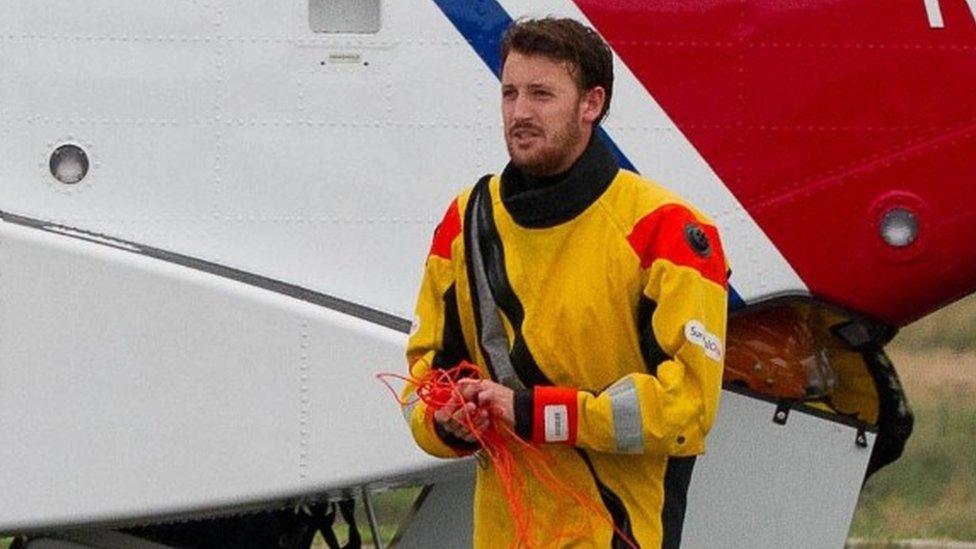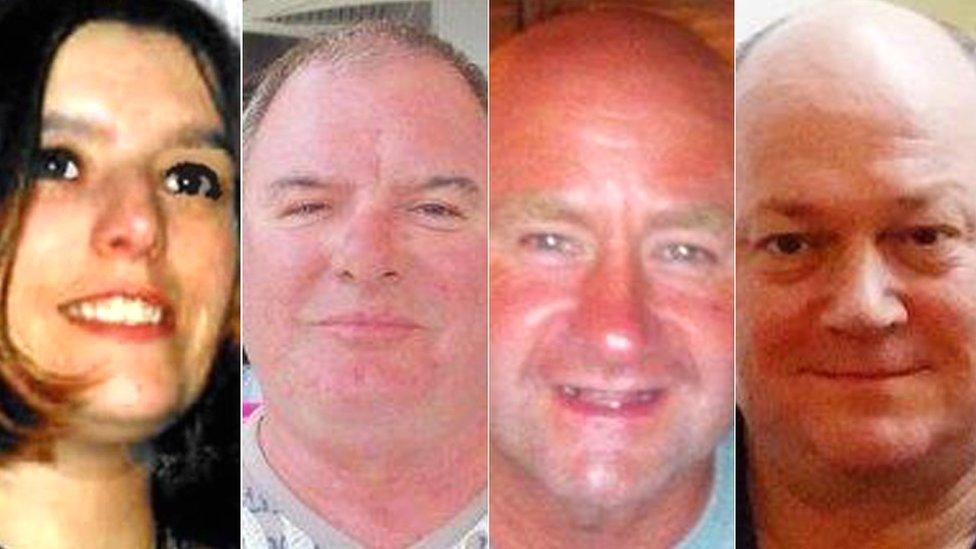Shetland Super Puma crash: Co-pilot's actions 'crucial' to survival
- Published

The helicopter overturned after hitting the water in 2013
The "quick-thinking" of the co-pilot of a helicopter that crashed off Shetland and filled with water was crucial, a fatal accident inquiry has heard.
Super Puma passengers Sarah Darnley, 45, from Elgin, Gary McCrossan, 59, from Inverness, Duncan Munro, 46, from Bishop Auckland, and George Allison, 57, from Winchester, died in 2013.
A total of 18 people were on board.
A crash investigator said the co-pilot managed to arm the flotation bags just before the helicopter hit the sea.
Adrian Cope, senior inspector of engineering with the Air Accidents Investigation Branch (AAIB), told the fourth day of the FAI he travelled to the scene the day after the crash.
The inquiry has heard the helicopter struck the water, with little warning to allow anyone to react, overturned and quickly filled with water.
'Kept helicopter afloat'
Mr Cope said of crew member Alan Bell's actions: "The co-pilot realised what was going to happen and armed the flotation bags".
He described his "awareness and quick-thinking" as "crucial" as that kept the helicopter afloat rather than it possibly sinking.
Mr Cope said the crash was classed as survivable, so it was important to try to understand why people did not.
The inquiry heard no evidence was found of any issue with the helicopter which had caused or contributed to the crash.
Mr Cope said the gearbox was one of the first things they looked into, and no fault was found.

Four people lost their lives in the crash in the 2013 crash
AAIB colleague Mark Ford, a senior inspector of air accidents specialising in flight data, also gave evidence.
He said analysis indicated there was quite a bit of variation in the way pilots would make their descents.
Mr Ford said the pilot in question, at 1,000ft, was at the correct speed in terms of operator guidelines.
Six-second warning
He said the aircraft was not fitted with a helicopter terrain awareness warning system, which was not a requirement.
Asked by Martin Richardson for the Crown if it would have been effective, he said tests indicated a warning would have been issued less than six seconds before the helicopter hit the sea, which it was believed would have come too late to prevent the accident.
Sarah Darnley, Duncan Munro and George Allison drowned.
Gary McCrossan, who had cardiac disease, died from heart failure following the crash.
The inquiry has also heard that one survivor, Samuel Bull, who was believed to be 28, later took his own life after suffering post-traumatic stress disorder.
The inquiry, which was previously delayed due to coronavirus measures, continues before Derek Pyle, Sheriff Principal of Grampian, Highland and Islands.
- Published2 September 2020

- Published1 September 2020

- Published31 August 2020

- Published5 June 2020

- Published31 March 2020

- Published29 January 2020
